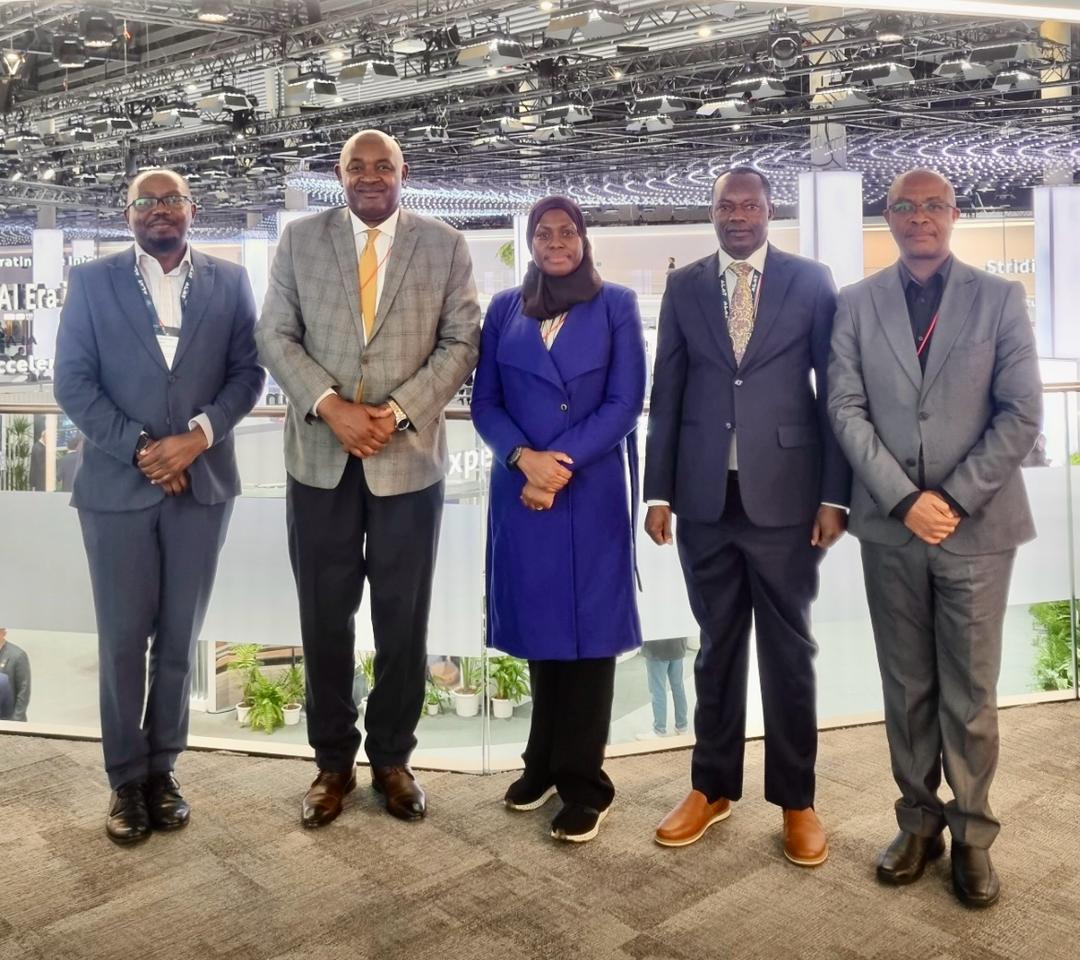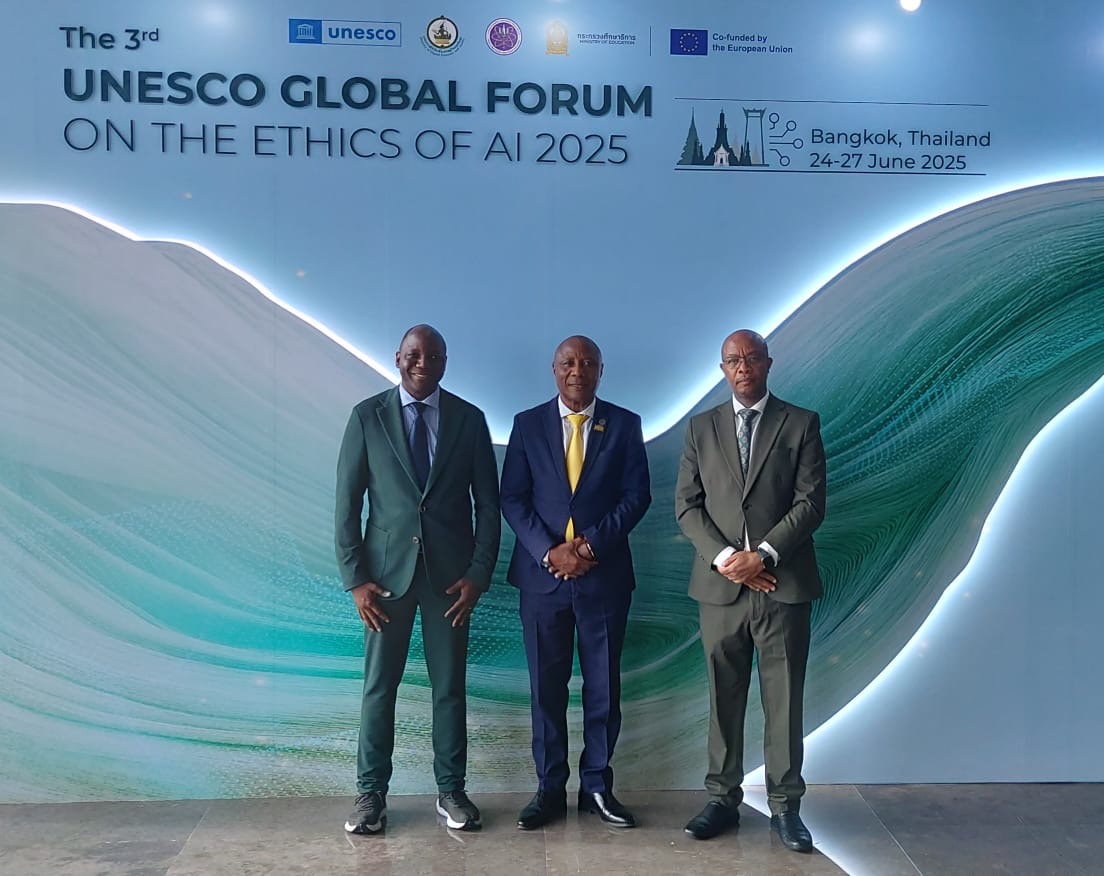The Mobile World Congress (MWC) in Barcelona, held from March 3rd to 6th, 2025, gathered industry leaders, policymakers, and technology innovators to explore advancements in 5G, artificial intelligence (AI), and advanced connectivity. While global tech giants showcased their innovations, Uganda was represented by key officials, including the Minister of ICT and National Guidance, Hon. Dr. Chris Baryomunsi, Permanent Secretary Dr. Aminah Zawedde, and Assistant Commissioner for Research and Development, Ambrose Ruyooka.
In an interview with Canary Mugume, a journalist at Next Media, Dr. Zawedde discussed Uganda’s AI plans. She revealed that the country is working toward AI governance, with a decision expected by the end of 2025. The government is considering either a formal AI policy or a more flexible, sector-driven approach. Dr. Zawedde stressed the importance of flexibility in governance to keep pace with the rapid evolution of AI technology and ensure that Uganda remains ahead in an ever-changing tech landscape.
In line with this, Uganda is involving key stakeholders, such as researchers, universities, and the private sector, to develop an AI strategy tailored to the country’s needs. AI is seen as a powerful tool for improving sectors like health, agriculture, education, and tourism. Dr. Zawedde mentioned that AI should benefit all sectors, ensuring that every Ugandan gain from the technology. This collaborative approach supports Uganda's broader digital transformation roadmap, which focuses on fostering innovation and building a digitally empowered society across all sectors of the economy.
A key component of Uganda’s AI strategy is ensuring ethical data governance. The government is working to standardize data collection methods to improve AI while safeguarding privacy and security. Dr. Zawedde emphasized that Uganda’s approach would be unique, focusing on the country’s specific context rather than copying models from other nations. This tailored approach is central to Uganda’s digital transformation goals, where strong digital governance and data integrity are essential for sustainable growth.
Building an AI-skilled workforce is another priority for Uganda, directly tied to the country’s digital skilling efforts. Although challenges like limited internet access in rural areas and a skills gap exist, Uganda is partnering with universities and training centers to teach more people about AI. Dr. Zawedde urged young Ugandans to seize opportunities in AI, noting that such expertise will increase employability and position Uganda as a competitive player in the global digital economy.
To support this, the Ministry of ICT and National Guidance is working on a comprehensive digital transformation roadmap. The roadmap outlines Uganda’s strategy to integrate digital technologies across all sectors, focusing on improving internet infrastructure, increasing digital literacy, and fostering innovation. Through initiatives like the National ICT Innovation Hub and the Uganda Digital Acceleration Program, the Ministry is ensuring that digital skilling remains a priority.
Dr. Zawedde also highlighted that AI plays a central role in the Fourth Industrial Revolution, which is reshaping industries globally. The Ugandan government is already integrating AI into key sectors such as agriculture, health, finance, and education. These efforts demonstrate how Uganda’s digital transformation is enhancing service delivery, increasing productivity, and improving citizens' quality of life.
Ambrose Ruyooka, reflecting on his experience at MWC, emphasized the role of AI, IoT, and emerging technologies in shaping Uganda’s digital future. He noted that global industry leaders underscored the importance of strategic partnerships, investment in AI-driven solutions, and inclusive policies. He also highlighted the need to prioritize digital skilling and EdTech to equip the workforce for the AI era. These insights are vital as Uganda continues to advance its Digital Transformation Roadmap, with AI playing a key role in driving economic growth and service delivery.
Uganda’s participation in MWC highlights the country's commitment to building a smarter, more connected future powered by AI. The decisions made in the coming months will be crucial for Uganda and other developing nations facing similar challenges. As Uganda continues its journey toward digital transformation and digital skilling, the steps taken today will shape a sustainable, innovative future. Stay tuned for further updates as Uganda progresses in this exciting digital age.

The author is a Communications Officer at the Ministry of ICT & National Guidance.
Related Stories

Artificial Intelligence
Ministry of ICT and National Guidance to leverage AI to drive the ICT innovation Agenda across Uganda in a partnership with Sunbird AI
Jan 26, 2023

.png)